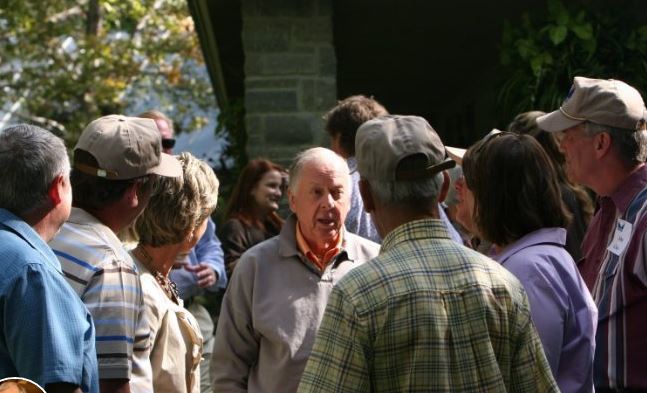Sep 2, 2015
In this LinkedIn Thought Leaders installment , professionals share their hiring secrets. Read the stories here.
#HowIHire
Several months ago I turned 87. Not much has changed for me. I show up at the office every day and practice what I preach: Come early, stay late, and never stop learning. When you turn 87, it’s important to stay optimistic. I like to think my life is half over. Nonsense, of course, but I’m the eternal optimist.
Sometimes it isn’t easy to be such an optimist. This has been a tough year for me — as it has for virtually everyone working in the oil and gas industry. Oil prices have declined steadily in recent months. That’s been great for consumers, but it’s bad news for producers and investors. Still, the experience of this last year has helped to underscore one of the key objectives I set for myself as a leader and chairman of BP Capital. I see myself as a coach. And my top priority is simple and straightforward: find people who can do a job better than I can — and then let them do it.
Our team at BP Capital is the best I have assembled in my half century in business. One of the biggest factors behind that is the team’s diversity. We have about a dozen members of different ages and backgrounds who bring of mix of experiences and perspectives to the discussion. Some had years of experience in the energy industry before I met them. Some I hired right out of college. I love to bring young people on board. Again, to use the sports metaphor, it’s like building a great football or basketball squad: you need some rookies and some veterans. You need a mix of skills, experience and energy; with each member having their own strengths. Combined well, every member brings something important to the team. And each person helps make everyone else around them better.
Business, like sports, is a competition. There are always winners and losers. Within this dynamic, teammates have high expectations of each other. As Vince Lombardi famously said: “You show me a good loser and I’ll show you a loser.” But as a coach in the heat of the game, you help your team not just by motivating them, but by not letting them panic. I remember walking into team meeting in our office on a particularly bad day a few years ago. The markets were down, and we were getting clobbered. “Fellas,” I said, “your faces are so long it would take two barbers to shave you.”
Confidence is critical. It’s proven to be a steadying influence that benefits them these challenging days. There is no one who has more confidence in their ability to make money than I do. Sure, I’ve lost money. A lot of money. But I’ve also turned around and made it back. If you’re in business long enough, there’s a good chance you’ll get knocked on your ass a few times. I’m not going to lie: It can hurt. You have to be strong enough to dust yourself off and keep playing. You just have to stay in the game, analyze well, stay focused, and surround yourself with the right team.
My team has remained pretty consistent over the years. There’s little turnover. Loyalty is key, as is rewarding loyalty and performance.
Finally, there’s one aspect to building a team that some find hard, but has somehow always come easily for me: Assessing someone’s work ethic. Someone has either got it, or they don’t. The members of my team who succeed work eight hours and sleep eight hours, and they’re not the same eight hours. Maybe it’s easy for me to identify that work ethic in others because it is what I have done every weekday — and a lot of weekends — for the last 60 years. I plan to keep doing it for the next 60 years. After that maybe I’ll be ready to retire. Maybe.

